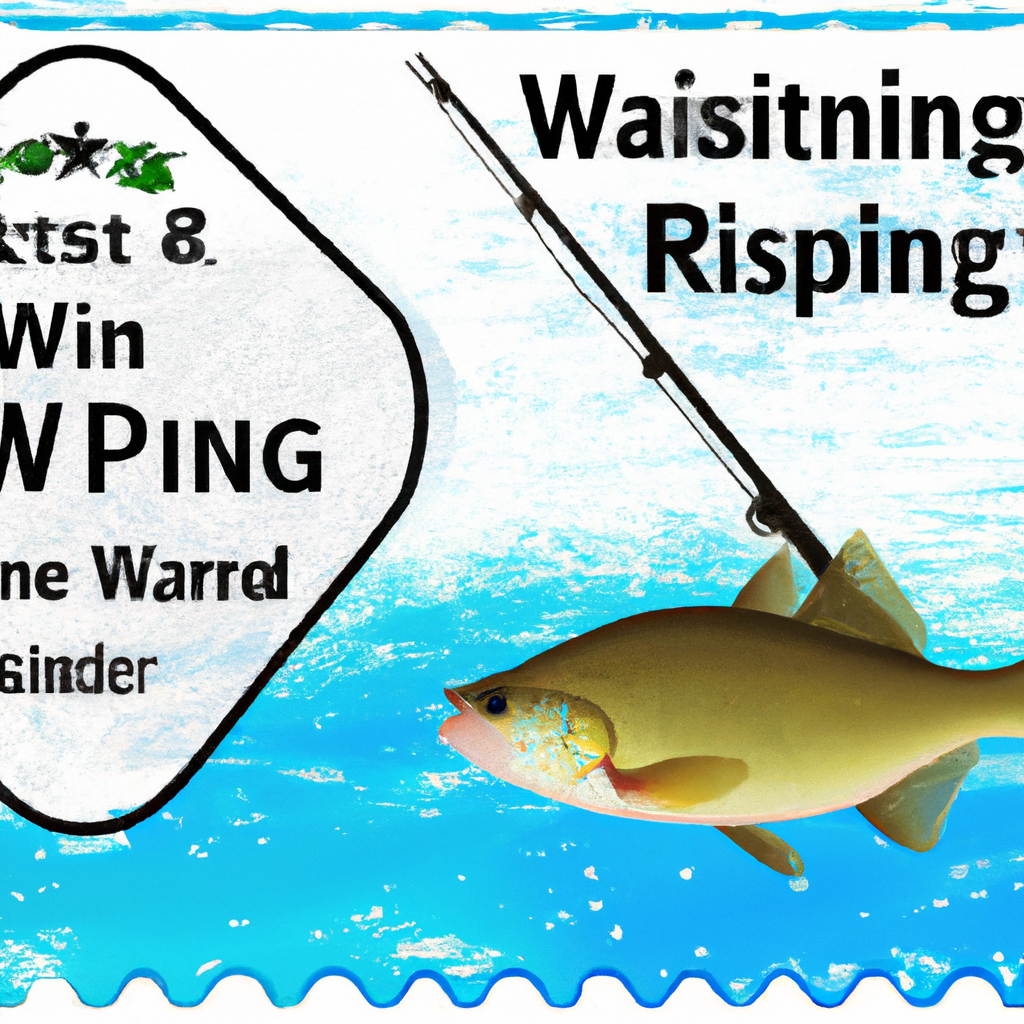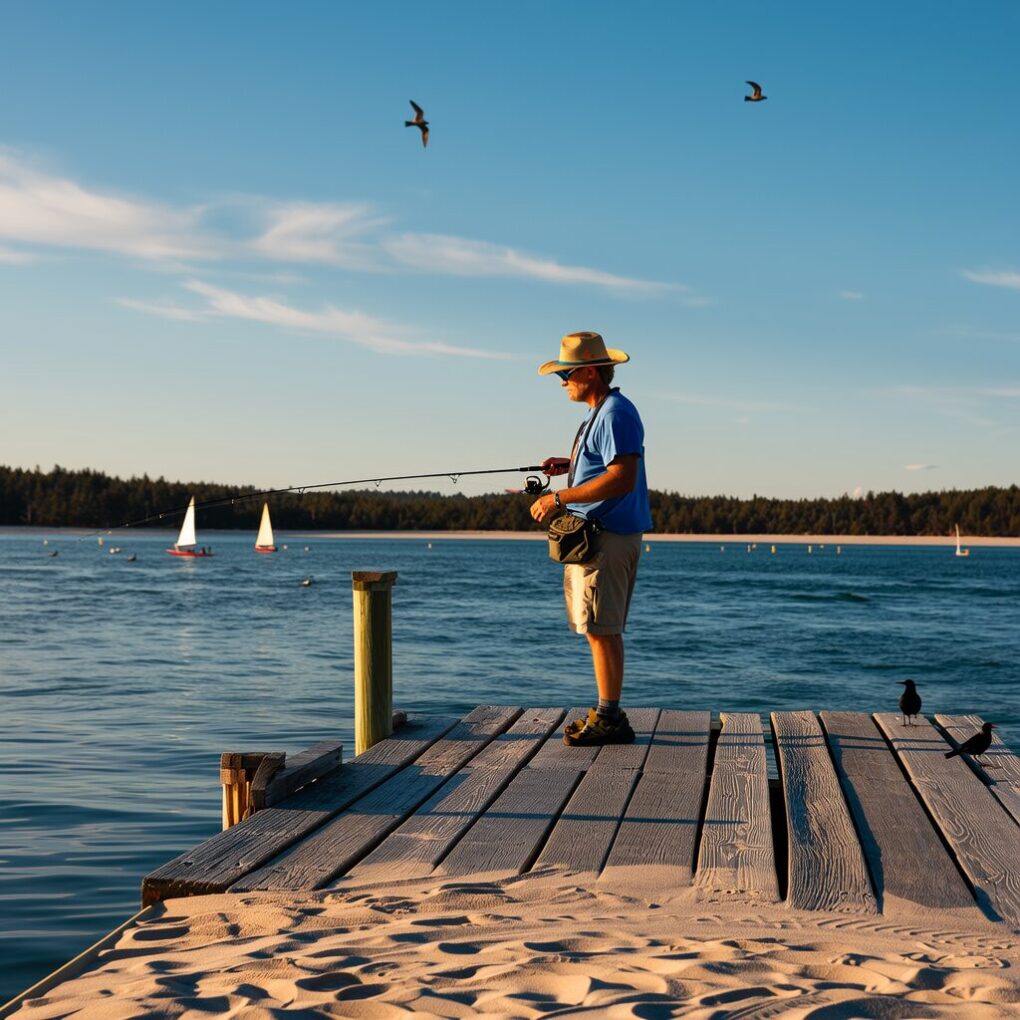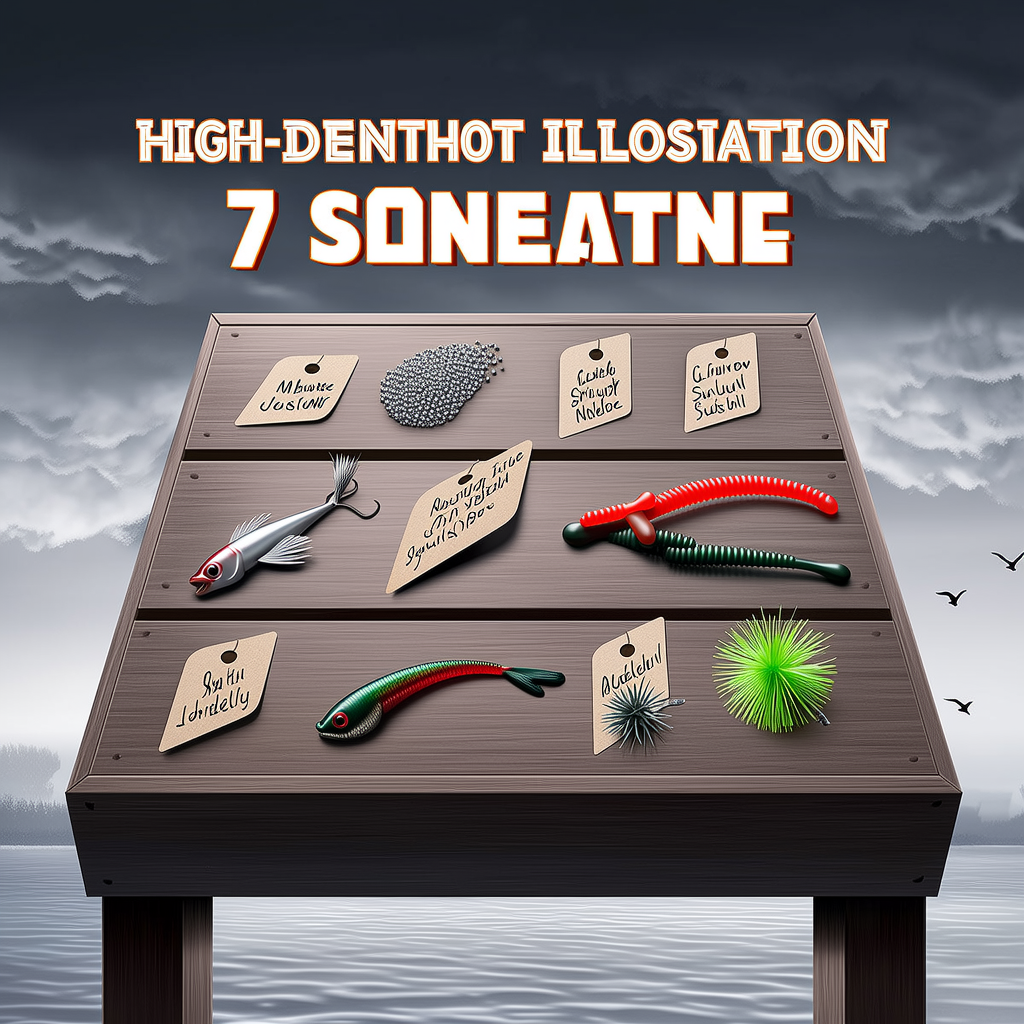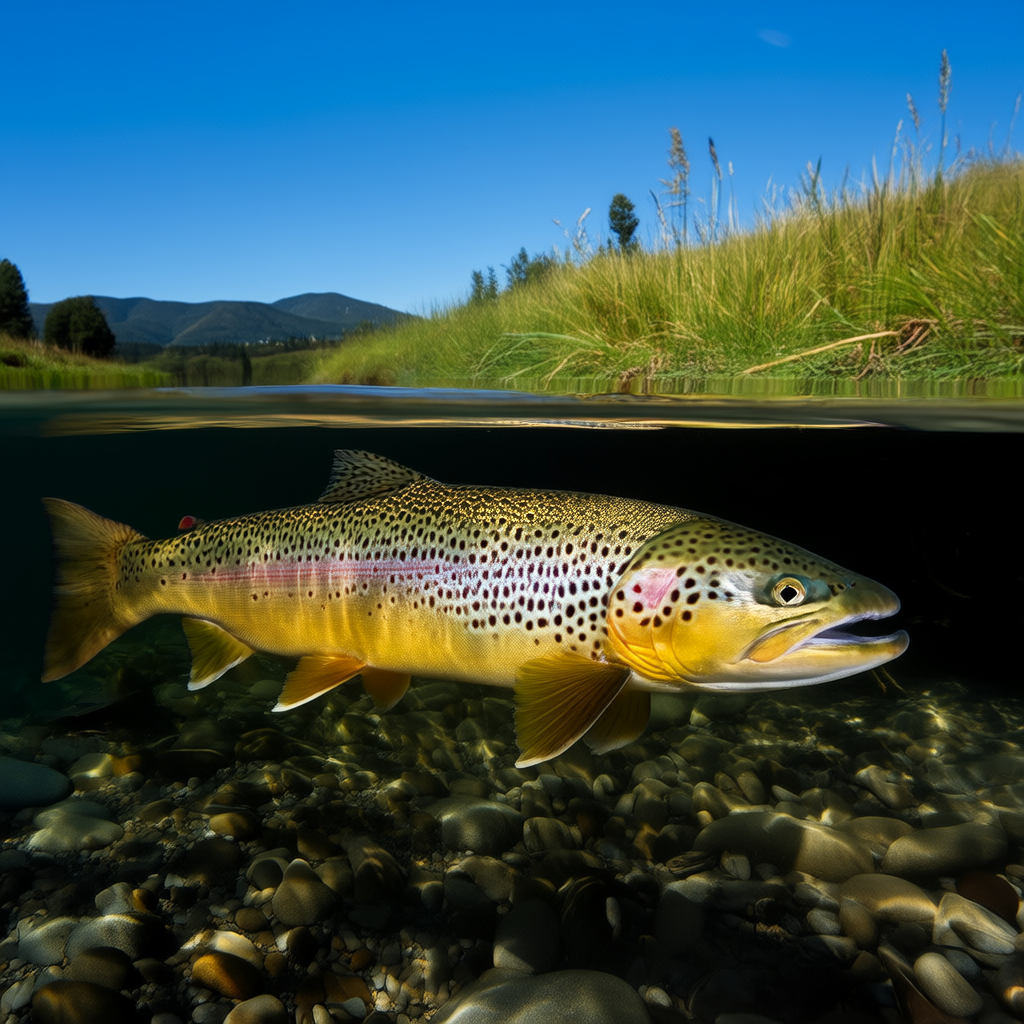Introduction
If you are an avid angler residing in West Virginia, acquiring a fishing license is a crucial step before embarking on your fishing adventures. A fishing license allows you to legally fish in the abundant waters of this beautiful state while ensuring the protection and preservation of its fish populations. In this comprehensive guide, we will delve into the details of obtaining a fishing license in West Virginia, including the process, requirements, fees, and additional regulations to help you have a memorable and responsible fishing experience.
Why Fish in West Virginia?
West Virginia is a haven for fishing enthusiasts, offering diverse fishing opportunities across its numerous lakes, rivers, and streams. Whether you prefer fly fishing or casting a line from a serene lakeshore, this state has something to satiate every angler‘s appetite. From trout and bass to catfish and sunfish, West Virginia’s waters teem with an array of fish species, making it an angler’s paradise.
Importance of a Fishing License
Obtaining a fishing license is not only a legal requirement but also a way to contribute to the conservation efforts of the state. Fishing licenses fund various programs aimed at safeguarding West Virginia’s aquatic ecosystems, improving fish populations, and maintaining sustainable recreational fishing opportunities. By purchasing a fishing license, you become an active participant in the preservation of natural resources, ensuring future generations can also enjoy the wonders of fishing in this magnificent state.
Fishing License Requirements
Before you can cast your line, there are certain prerequisites to fulfill in order to obtain a fishing license in West Virginia. These requirements are designed to ensure that fishing activities are carried out responsibly and in adherence to state regulations. The following are the key requirements for obtaining a fishing license:
Residency
In West Virginia, fishing licenses are available for both residents and non-residents. If you are a resident of West Virginia, you will need to provide proof of residency, such as a driver’s license or utility bill, when applying for your fishing license. Non-residents, on the other hand, are not required to provide proof of residency.
Age
Anglers of all ages can enjoy fishing in West Virginia; however, the age requirements for obtaining a fishing license may vary. Children under a certain age, typically 15 or 16, may not require a fishing license if accompanied by a licensed adult. It is important to familiarize yourself with the specific age requirements set by the West Virginia Department of Natural Resources (WVDNR) before planning your fishing trip.
Identification
When applying for a fishing license, you will need to present a valid form of identification. This can be a driver’s license, state ID, passport, or any government-issued identification that verifies your identity.
Completion of Education Programs
Some age groups, particularly young anglers, may be required to complete certain education programs before obtaining a fishing license. These programs aim to provide education and training on fishing regulations, conservation practices, and safety measures. The completion of such programs not only enhances your knowledge but also instills a sense of responsibility towards the natural resources you will be enjoying.
Fees
There are various fishing license options available in West Virginia, each with its own set of fees. The fees depend on factors such as residency, age, and duration of the license. The revenue generated from these fees is crucial for funding conservation and management projects, ensuring sustainable fishing opportunities for all.
Types of Fishing Licenses
The West Virginia Department of Natural Resources offers different types of fishing licenses to cater to the diverse needs of anglers. Whether you are a resident or a non-resident, planning a short fishing trip or a year-round angling adventure, there is a fishing license option to suit your preferences. The following are the main fishing license types available in West Virginia:
Resident Fishing License
A resident fishing license is available to individuals who have been residing in West Virginia for a certain period of time. This license allows you to fish throughout the year and is available for one, three, or five-year durations. The fees for a resident fishing license are generally lower compared to non-resident licenses, making it an ideal choice for passionate local anglers.
Non-Resident Fishing License
If you are visiting West Virginia and want to enjoy its fishing opportunities, a non-resident fishing license is what you need. This type of license allows you to fish for specified durations, usually ranging from one day to one year, depending on your preferences. Non-resident fishing licenses often have higher fees compared to resident licenses, reflecting the difference in residency status.
Youth Fishing License
The West Virginia youth fishing license is tailored specifically for young anglers who want to experience the joy of fishing. This license is available to residents and non-residents alike, and offers reduced fees for children up to a certain age. The youth fishing license not only encourages young individuals to explore the world of fishing but also instills a sense of responsibility and appreciation for the outdoors.
Trout Stamp
West Virginia is renowned for its exceptional trout fishing opportunities. To enhance trout stocking and conservation efforts, the state requires anglers to purchase a trout stamp in addition to their fishing license. The trout stamp fees contribute directly to the enhancement and maintenance of trout populations in West Virginia’s waters. This stamp is a must-have for anglers targeting trout species.
Additional Permits
In addition to the main fishing licenses, certain fishing activities might require additional permits or endorsements. For example, anglers planning to fish for certain species or engage in specific methods, such as commercial fishing or using nets, may need to acquire additional permits. It is important to familiarize yourself with these requirements and obtain the necessary permits to avoid any legal repercussions.
Obtaining a Fishing License
Acquiring a fishing license in West Virginia is a straightforward process. With the advent of online systems, obtaining your license has become more convenient than ever before. The West Virginia Department of Natural Resources provides an online portal where you can easily apply for and purchase your fishing license. The following steps will guide you through the process:
Step 1: Visit the WVDNR website
To begin the process, visit the official website of the West Virginia Department of Natural Resources. Navigate to the fishing license section, where you will find the online portal for license applications.
Step 2: Select your license type and duration
Choose the fishing license type that best suits your needs. Whether you are a resident or a non-resident, planning a short fishing trip or a long-term angling escapade, carefully select the appropriate license type and duration from the available options.
Step 3: Provide necessary information
Fill in the required information, including your personal details, contact information, and residency status. Make sure to provide accurate and up-to-date information to avoid any complications during the application process.
Step 4: Submit payment
Purchase your fishing license by submitting the required payment through the online portal. The fees can be paid using various secure payment options, ensuring a hassle-free transaction. Keep in mind that the fees may vary depending on the license type and duration you selected.
Step 5: Receive your fishing license
Once your application and payment have been processed successfully, you will receive your fishing license through the preferred method of delivery you selected during the application process. The most common methods include email, postal mail, or the option to download and print your license immediately.
Fishing Regulations in West Virginia
As responsible anglers, it is vital to familiarize ourselves with the fishing regulations in West Virginia. These regulations are in place to protect fish populations, preserve the natural resources, and ensure a fair and sustainable fishing experience for all. The following are some key fishing regulations to keep in mind:
Fishing Seasons
West Virginia has defined fishing seasons for different fish species. It is important to stay updated on these seasons and adhere to the fishing dates specified by the state. Fishing outside of the designated seasons may result in penalties or legal consequences.
Fishing Methods
The WVDNR specifies the permitted fishing methods for different waters and species. Anglers must follow these guidelines to maintain the integrity of the ecosystem and prevent undue harm to fish populations. Prohibited methods may include the use of certain lures, bait, or equipment, as well as catch-and-release restrictions.
Catch Limits
West Virginia imposes catch limits to prevent overfishing and ensure a sustainable fishery. These limits restrict the number of fish that can be caught and kept, typically on a daily or possession basis. Familiarize yourself with the catch limits for the specific fish species you intend to target before your fishing trip.
Size Restrictions
In addition to catch limits, size restrictions may also apply to certain fish species in West Virginia. These restrictions are put in place to protect breeding populations and prevent the harvesting of immature fish. Make sure to measure and release undersized fish in accordance with the state’s size restrictions.
Special Regulations
Some waters and areas in West Virginia may have special regulations, such as catch-and-release-only zones, gear restrictions, or specific fishing hours. These regulations are often implemented to address a particular conservation concern or enhance recreational fishing opportunities. It is vital to research and understand any special regulations applicable to your fishing location.
Frequently Asked Questions (FAQs)
1. How much does a fishing license cost in West Virginia?
The cost of a fishing license in West Virginia varies depending on factors such as residency, age, and duration of the license. Resident licenses generally have lower fees compared to non-resident licenses. Detailed information about the different license options and their respective fees can be found on the West Virginia Department of Natural Resources website.
2. Can I fish without a license in West Virginia?
No, fishing without a license in West Virginia is illegal and can result in penalties and fines. It is important to obtain a valid fishing license before engaging in fishing activities, regardless of your residency status or age.
3. Can I purchase a fishing license as a gift?
Yes, fishing licenses can be purchased as gifts for family or friends. The West Virginia Department of Natural Resources provides options for purchasing fishing licenses on behalf of others. This allows you to share the joy of fishing and ensure that your loved ones comply with the state’s fishing regulations.
4. Are there any free fishing days in West Virginia?
Yes, West Virginia celebrates National Fishing and Boating Week by offering free fishing days, usually in June, where residents and non-residents alike can fish without purchasing a license. However, certain regulations, such as size limits and catch limits, still apply on these free fishing days.
5. Can I fish in West Virginia with an out-of-state license?
Yes, non-residents can fish in West Virginia by purchasing a non-resident fishing license. This license allows individuals from outside the state to enjoy the fishing opportunities provided by West Virginia’s waters.
6. Can I fish for trout without a trout stamp?
No, trout fishing in West Virginia requires anglers to possess a valid trout stamp in addition to their fishing license. The fees from the trout stamp contribute directly to trout conservation and management efforts in the state.
Conclusion
Acquiring a fishing license in West Virginia is a simple process that allows anglers to enjoy the bountiful fishing opportunities this state has to offer. By obtaining a fishing license, you not only abide by the state’s regulations but also contribute to the conservation and management of its aquatic habitats. Remember to familiarize yourself with the fishing regulations and requirements before your trip to ensure a responsible and enjoyable fishing experience. So, grab your fishing rod, obtain your fishing license, and embark on an unforgettable angling adventure in the beautiful waters of West Virginia!




